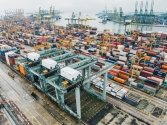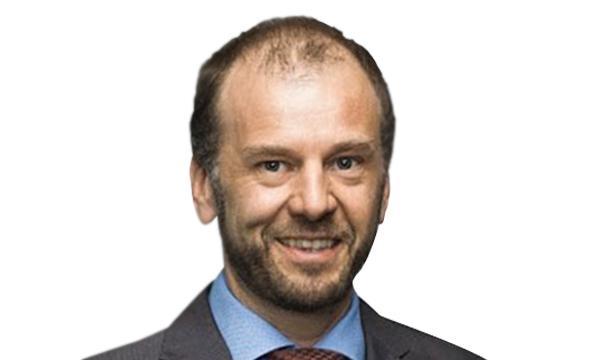
How Senoko Energy brings tech innovation in Singapore's power sector
They recently launched an SGQR code for bills payment.
Being one of the oldest does not mean lagging behind the times for Senoko Energy, which cites their pursuit for innovation as a driver of their success. They launched an SGQR code in November 2019 that can be used for paying bills, the first amongst energy provider in Singapore. Another industry first they are working on is a pilot test for peer-to-peer trading of renewable energy.
In an interview with Asian Power, Senoko Energy president and CEO Bernard Esselinckx shares how they have incorporated technology to their energy solutions, as well as their initiatives in promoting sustainability through their first solar project last June.
What strategies have you employed to drive Senoko Energy to success over the years?
As one of Singapore’s oldest and largest power generation companies, we have played an instrumental role in powering the nation through its developing years. Our business strategy through the years can be summed up in three words – sustainability, innovation and talent.
Sustainability is at the core of our business and we aim to be an energy provider with a positive impact on the environment. We were the first genco in Singapore to use 100% natural gas for power generation back in 1992 and the first to repower our plants in 1996. We believe our success can partly be attributed to our industry-first initiatives to drive Singapore’s energy industry to a sustainable future.
We are also constantly exploring ways to deliver innovative energy solutions to businesses and households and address the challenges of the transforming energy landscape. For example, the Senoko Energy Management System helps businesses enhance energy efficiency and reduce overall electricity costs using wireless sensors and cloud. Last year, we launched the Senoko Energy mobile app to help our customers monitor their energy consumption in near real-time, so that they can better manage it. Our willingness and ability to evolve with the times and constantly offer innovative energy solutions to our customers has been instrumental in our success.
We recognise that our people are our biggest asset, and we have invested heavily over the years to find and develop the right talent. We have been an ITE Certified On-the-Job Training Centre (COJTC) since 1997 and were selected for the COJTC Distinguished Partner Award in 2019. We have also launched an eLearning platform, WizLearn, to complement classroom training. We also strive to encourage our employees to take responsibility for their learning through initiatives such as the Nithiah Nandan Award, which recognises employees who have made exceptional efforts to pursue skills mastery.
What are you working on for the rest of 2019 and 2020? By the numbers, how much is Senoko Energy's investment in these projects?
Our focus for 2019 and 2020 is to develop and deliver more choice and convenience for customers, helping them reduce their cost of energy through new smart energy solutions. We are investing in new offerings for businesses and households, as well as in testing new energy innovations, and are looking forward to rolling out our pipeline of initiatives and projects over the course of the coming year.
Starting this month [November 2019], we are launching the SGQR code that our customers will be able to use to pay their bills. We are the first energy provider in Singapore to adopt the SGQR and we hope it will make the e-payment process for our customers simple and faster. We also hope that by eliminating the time-consuming and confusing process of choosing from multiple QR codes, more of our customers will be incentivised to adopt e-payments.
Another exciting project that we are working on currently is a pilot test in the area of peer-to-peer trading for renewable energy – an industry first in Singapore. The goal is to develop a next-generation energy-management mechanism for the smart grid that empowers consumers to trade renewable energy they produce and drives greater adoption of renewables.
Besides these new initiatives, we will also continue to look at ways to improve efficiency and reduce cost in our assets, as well as help develop technical and leadership skills in our people.
We are investing significantly in these projects in terms of finances, resources, manpower and time, in order to deliver on our commitment to provide smart energy solutions to Singapore businesses and households, as well as to help strengthen Singapore’s position as a global energy leader.
How is Senoko Energy doing its part in Singapore's energy transition?
As one of Singapore’s oldest and largest power generation companies, providing almost one-fifth of the nation’s electricity, we are committed to doing our part in helping Singapore transition to a low-carbon future. We have always been advocates of doing business in a sustainable manner. We led the way by being the first genco in Singapore to use 100% natural gas for power generation back in 1992 and the first to repower our plants in 1996. Our sustainability efforts have led to a 42% reduction in carbon emissions since 2000.
We see our role in supporting Singapore’s energy transition as being two-fold: help drive the clean energy shift and continue to ensure Singapore’s energy security during the transition period.
In recent years, we have expanded our portfolio to include renewables with the launch of our first solar project as well as sourcing and providing renewable energy certificates. Now we are looking beyond generation to incentivise the adoption of renewables on a consumer level. Our pilot test in peer-to-peer trading of renewables aims to test the commercialisation of this offering in Singapore. Having an open and transparent trading platform for renewable energy will also enable price discovery for locally produced renewable energy. On the supply side, we hope the resulting pricing transparency will encourage more investment in renewable infrastructure.
At the same time, we recognise that with challenges such as intermittency and land scarcity in Singapore, the integration of renewables in the energy mix will require time. We are committed to ensuring energy security and affordable power for Singaporeans during the transition phase at the lowest possible carbon footprint. We are constantly investing in advanced technology to further improve energy efficiency in our power plants. We also use one of the most efficient and optimal F-class power generation technology in the market.
What innovations are you launching to retain and grow your share in Singapore's saturated power market?
We believe that the key to staying competitive in this transforming landscape is to stay at the forefront of change by constantly innovating and diversifying our offerings to provide more choice and convenience for our customers. For instance, we have launched tenant management services for landlords of commercial buildings, condominiums and Management Corporation Strata Title, to help them optimise their electricity consumption and reduce cost. For households and SMEs, we are rolling out the SGQR code to provide our customers a smarter, easier and hassle-free method of paying their bills.
Besides servicing customers, we have adopted a forward-looking approach and are exploring new energy solutions in Singapore such as peer-to-peer trading of renewable energy. We believe that such industry-first initiatives will be instrumental in helping us stay ahead of the curve and expand our business in the future with new revenue streams.
We also believe that in order to grow our market share, we also need to continually improve on our internal capabilities and processes. As such, we are continuing to invest in energy efficiency upgrades in our power plant as well as improvements in our O&M practices. For instance, we have launched Project Sunshine to overhaul SAP asset management in our operations for greater efficiency. We are also looking to introduce more trainings to help upskill our workers and keep them up-to-date with technological advancements.
How should the public and private sector collaborate in determining Singapore's energy mix? What synergies can both sectors tap into?
The biggest challenge the energy industry faces today is the energy trilemma - finding the right balance between affordability, energy security and environmental sustainability. There is a need for a stable regulatory framework that balances these considerations. The public and private sector need to work together to find a way to make the sector sustainable and attractive for investors.
In terms of integration of renewables in the energy mix, collaboration between the sectors is crucial to address the challenges in the adoption of solar energy. One of the key concerns is the issue of intermittency in solar power generation, which could cause more frequent supply-demand imbalances and in turn greater price volatility in energy prices. As we look to increase the share of solar energy in Singapore’s energy mix, we need to balance it with adequate natural gas fuelled combined cycle plants which meet most of the current energy demand. At Senoko Energy, we are engaging with the EMA in its policy and market design for Forward Capacity Market and potential changes to National Electricity Market of Singapore to evaluate how power generation companies can sustainably continue to support Singapore’s energy security in the short to medium-term as we make the transition to renewables.
What are your ambitions for Singapore (and other markets, if possible) and what do you think are the key factors to achieve these?
During the recent Singapore International Energy Week, Trade and Industry Minister Chan Chun Sing highlighted four key areas of focus that will shape the future of Singapore’s energy industry – increased deployment of solar energy, investment in natural gas, development of a regional power grid, and exploring low-carbon technologies. At Senoko Energy, we are committed to helping Singapore attain this vision.
In line with Singapore’s solar ambitions, we have expanded our portfolio to launch our first solar project as well as REC trading capabilities. Our P2P pilot project is the next step in our efforts to drive the adoption of solar energy in Singapore.
At the same time, we are cognizant of the role natural gas will play in Singapore’s energy security to complement the intermittent nature of solar energy. As such, we have diversified our sources of natural gas supply, being the only genco in Singapore with three sources. We are also continuing to invest in efficiency upgrades in our power plants. On an industry level, we are engaging with the regulators to develop the necessary compensation mechanisms for power generation companies to be able to sustain the capacity needed for Singapore’s energy security.
We are looking to work with regulators and industry partners to see how we can leverage a regional grid to offer more renewable options in Singapore. However, while regional interconnection increases the overall system security by increasing the diversity of available resources, countries also need to balance this against independence in energy supply. At Senoko Energy, we are looking to explore more carbon-free alternatives such as importing green hydrogen for power generation in the future. Being backed by a consortium of shareholders including Marubeni Corporation, ENGIE S.A., The Kansai Electric Power Co. Inc., Kyushu Electric Power Co. Inc. and Japan Bank for International Cooperation, we are well-positioned to leverage their presence in regional markets as well as their know-how in technologies such as green hydrogen to support the progress of Singapore’s energy industry.


















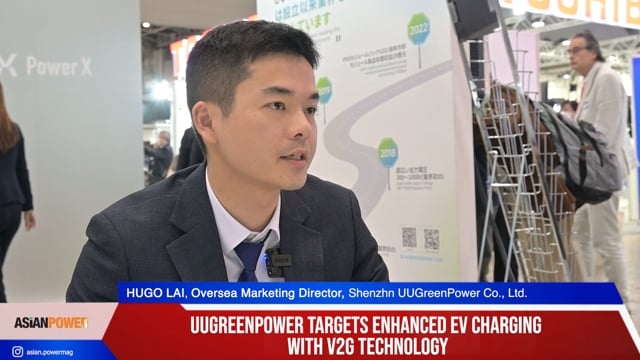
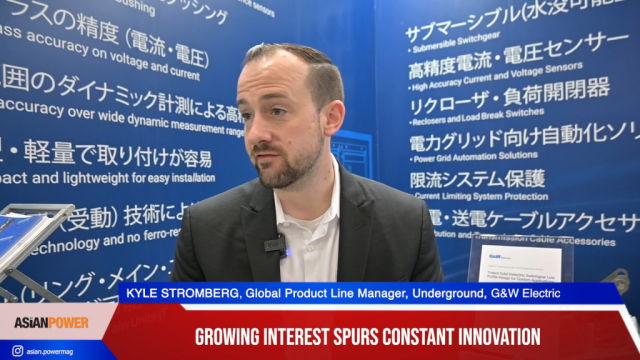
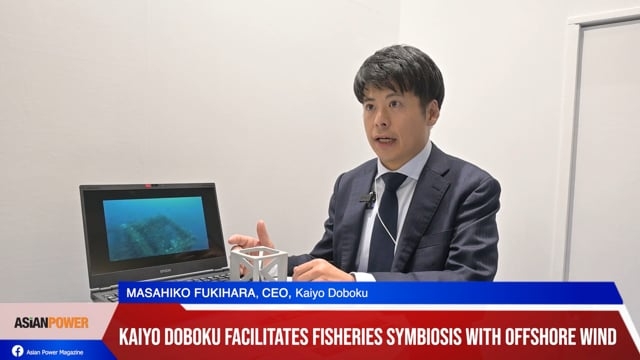
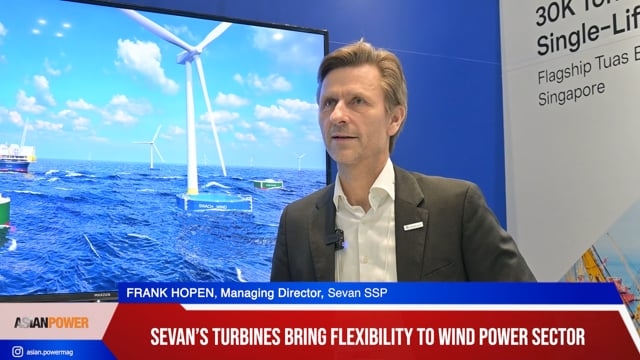

 Advertise
Advertise
